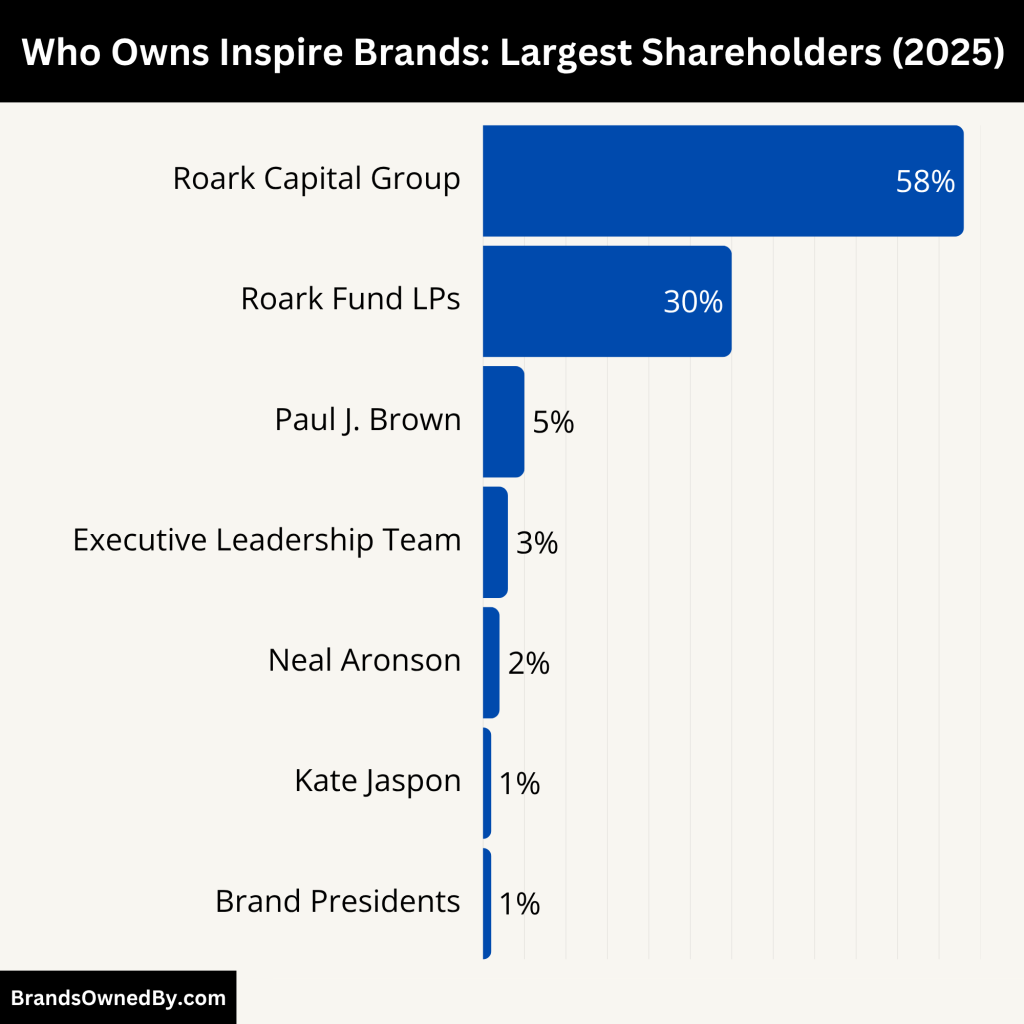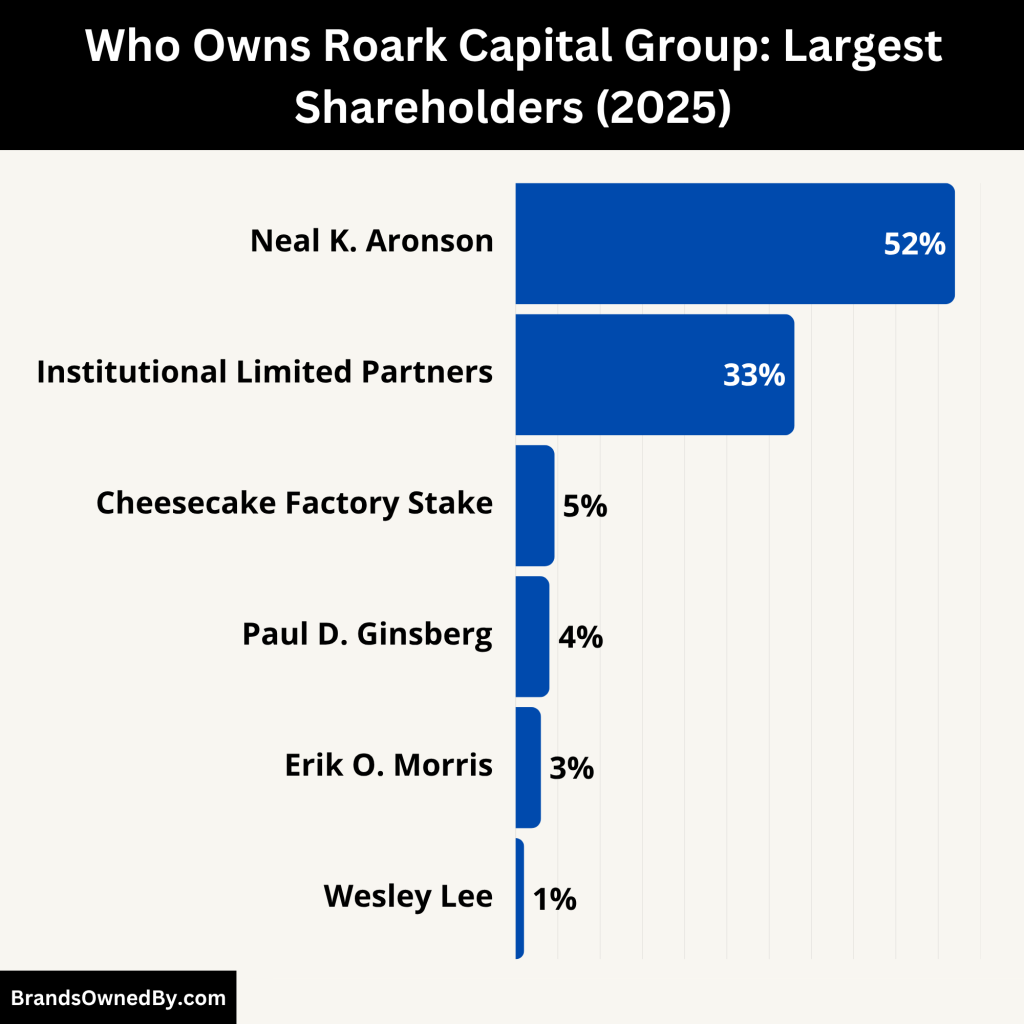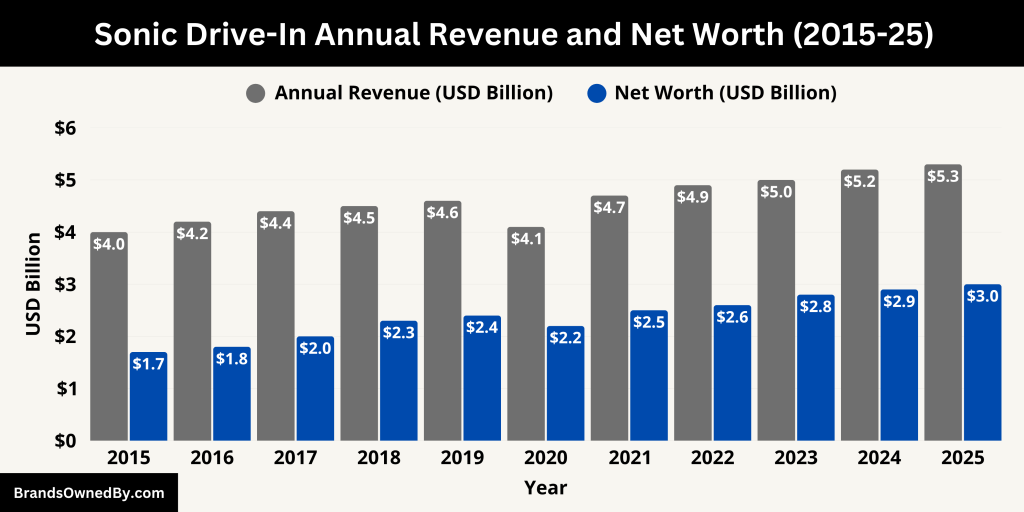Sonic Drive-In, often just called Sonic, is a recognizable name in American fast-food culture. Known for its carhop service and retro vibes, many people ask who owns Sonic today. The answer is more complex than just a name — it involves acquisitions, corporate structures, and brand networks.
Sonic Drive-In Company Profile
Sonic Drive-In, also known simply as Sonic, is one of the most iconic fast-food chains in the United States. It is widely recognized for its carhop service, retro ambiance, and roller-skating servers delivering orders directly to customers’ cars. As of 2025, Sonic operates over 3,550 locations across 47 U.S. states, making it the largest drive-in restaurant chain in the country.
Founding and Early Years
Sonic was founded in 1953 by Troy N. Smith Sr., in Shawnee, Oklahoma. The first restaurant operated under the name Top Hat Drive-In, but Smith later discovered that the name was already trademarked. In 1959, he changed the name to Sonic, inspired by their slogan “Service with the Speed of Sound.”
Smith was a World War II veteran and an entrepreneur who had previously run a diner and root beer stand. His innovative idea of in-car ordering with intercoms set Sonic apart from other fast-food chains of that era.
Key Milestones in Sonic’s Growth
- 1959: Officially renamed Sonic. The slogan “Service with the Speed of Sound” is adopted.
- 1973: Reaches 100 locations across Oklahoma and nearby states.
- 1991: Goes public on the NASDAQ under the ticker SONC.
- 1998: Surpasses 1,500 stores, becoming a top player in the drive-in fast-food segment.
- 2003: Launches its first national advertising campaign, building brand awareness coast-to-coast.
- 2010: Begins focusing on technology upgrades, including mobile payment and order-ahead capabilities.
- 2018: Acquired by Inspire Brands in a $2.3 billion all-cash transaction, becoming a privately held subsidiary.
- 2020–2024: Introduces AI-powered menu boards, expands mobile ordering, and rolls out limited international pilot tests in Canada and Puerto Rico.
- 2025: Sonic reaches 3,550+ locations, reports strong system-wide sales, and continues to modernize with smart drive-ins featuring automated order fulfillment in select cities.
Today, Sonic balances its nostalgic 1950s theme with cutting-edge food delivery and digital engagement. It is known for its expansive drink menu, customizable slushes, footlong hot dogs, crispy tots, and a dedicated late-night crowd.
Sonic operates under a franchise-based model, with about 93% of its locations franchised and the rest corporately owned. Its headquarters remains in Oklahoma City, Oklahoma, and it employs over 6,000 people at the corporate and operational level, with tens of thousands more working at franchise locations.
Sonic’s ability to evolve while keeping its nostalgic charm has helped it remain one of America’s favorite fast-food experiences even in 2025.
Who Owns Sonic Drive-In?
Sonic Drive-In is wholly owned by Inspire Brands, a major American restaurant holding company. Inspire Brands acquired Sonic in December 2018 in a deal valued at approximately $2.3 billion. Since then, Sonic has operated as a privately held subsidiary under Inspire’s growing portfolio of fast-food and casual dining chains.
Parent Company: Inspire Brands

Inspire Brands is the direct parent company of Sonic. Headquartered in Atlanta, Georgia, Inspire Brands was formed in 2018 through the merger of Arby’s and Buffalo Wild Wings. Since then, it has become one of the largest restaurant companies in the world, overseeing multiple well-known brands.
As of 2025, Inspire Brands owns and operates the following major chains:
- Arby’s
- Buffalo Wild Wings
- Dunkin’
- Baskin-Robbins
- Jimmy John’s
- Sonic Drive-In
- Rusty Taco
The combined portfolio under Inspire accounts for over 32,000 restaurants globally, generating system-wide sales in the tens of billions annually.
Acquisition of Sonic by Inspire Brands
Sonic was acquired by Inspire Brands in December 2018. The all-cash transaction amounted to approximately $2.3 billion, including the assumption of Sonic’s existing debt. At the time of the acquisition, Sonic was a publicly traded company listed on the NASDAQ under the ticker SONC. Following the acquisition, Sonic was delisted and became a privately held entity.
The acquisition aimed to strengthen Inspire Brands’ portfolio with a unique drive-in model and strong regional following. Sonic’s differentiation in format and branding made it an attractive addition to Inspire’s expanding ecosystem. Since then, Sonic has been operating under the same corporate structure but has benefited from centralized resources like:
- Shared technology platforms
- Combined marketing and analytics
- Integrated supply chain systems.
This synergy has allowed Sonic to modernize and expand while still maintaining its identity.
Ultimate Ownership: Roark Capital Group

Inspire Brands is majority-owned by Roark Capital Group, a private equity firm based in Atlanta. Roark specializes in franchised and multi-unit businesses, with a strong presence in the foodservice industry.
Roark Capital holds a controlling interest in Inspire Brands, and through it, ultimately owns Sonic. The firm manages over $37 billion in assets as of 2025 and has stakes in numerous other companies beyond food and beverage.
Additional Ownership and Control Details
Since Sonic is privately held under Inspire Brands, its equity is not publicly traded. Ownership is concentrated among:
- Roark Capital Group (majority shareholder)
- Inspire Brands leadership team (minority equity holders)
- Private investors and institutional partners
Sonic’s strategic direction is influenced by Inspire’s executive leadership, particularly Paul Brown, the co-founder and CEO of Inspire Brands. However, Sonic retains its own leadership, with Jim Taylor serving as President and overseeing brand-specific operations.
Who is the CEO of Sonic Drive‑In?
Sonic Drive‑In is led by Jim Taylor, who serves as Brand President. In Inspire Brands’ structure, each brand president functions similarly to a CEO of their respective chain. Jim took over the role in April 2023, succeeding Claudia San Pedro, who stepped down to focus on family medical matters. Taylor reports to Paul Brown, CEO of the parent company Inspire Brands.
Jim Taylor’s Background & Leadership
Jim Taylor joined the Inspire family via Arby’s, where he served nearly nine years across product development, marketing, and leadership functions. As Arby’s Brand President since August 2019, he delivered nine years of consecutive same-store sales growth and record-high average unit volumes.
His accomplishments include spearheading campaigns like the Wagyu Burger and Diablo Dare. His transition to Sonic aims to replicate this success in the drive‑in category.
In his current role at Sonic, Taylor is responsible for:
- Shaping Sonic’s strategic vision
- Overseeing marketing, operations, and franchise relations
- Aligning Sonic’s goals with Inspire’s broader platform
Reporting Structure & Corporate Oversight
Although Taylor runs Sonic day‑to‑day, major decisions—such as mergers, technology initiatives, and enterprise-wide branding—are directed by Inspire Brands, led by Paul Brown. This model ensures unified direction across Inspire’s portfolio while preserving brand-specific autonomy.
CEO of Inspire Brands – Paul J. Brown
Leadership Role
Paul J. Brown is the Co-Founder and CEO of Inspire Brands, created in February 2018. His responsibilities encompass:
- Overseeing acquisitions and integrations—including Buffalo Wild Wings, Sonic, Jimmy John’s, Dunkin’, and Baskin‑Robbins
- Steering enterprise strategy across all six brands and over 33,000 restaurants
- Cultivating digital innovation, tech platforms, and shared services to enhance brand synergies.
Experience & Achievements
Before founding Inspire, Brown served as CEO of Arby’s, igniting its turnaround. He held key roles at Hilton Worldwide (President of Brands & Commercial Services) and Expedia (President of Expedia.com). He began his career at McKinsey, leading their global travel and hospitality division.
His education includes a BS from Georgia Tech and an MBA, plus a Master of Engineering Management from Northwestern’s Kellogg and McCormick Schools.
Community & Board Involvement
In addition to his Inspire duties, Brown was appointed Chair of the Board at Children’s Healthcare of Atlanta in January 2025. He also serves on boards including the Georgia Tech Foundation and the Metro Atlanta Chamber of Commerce.
Sonic Drive‑In Annual Revenue and Net Worth
Sonic Drive‑In stands on solid financial ground. With annual systemwide sales of around $5.3 billion and an estimated net worth of $3 billion as of July 2025, Sonic remains a valuable asset within Inspire Brands. Its continued unit-level strength, technological progression, and retained brand appeal make it a standout performer in the drive‑in fast-food sector.

2025 Annual Revenue
In 2025, Sonic Drive‑In demonstrates strong financial performance. According to the latest Franchise Disclosure Document data, the average unit volume (AUV) for a Sonic franchise is approximately $1.5 million in annual sales.
Given that Sonic operates about 3,550 locations nationwide, total system sales are estimated at $5.3 billion or higher. This figure grows steadily due to franchise expansion and improvements in same-store sales.
Although Sonic no longer reports standalone financial statements, its continued growth in sales and profitability is evident. The chain has benefited from boosts in digital ordering, drive‑thru and in‑car service upgrades, and an enhanced loyalty program.
Net Worth and Valuation
Privately held as a part of Inspire Brands, Sonic’s estimated net worth is tied closely to its acquisition price and ongoing performance. When Inspire Brands acquired Sonic in 2018, the deal was priced at $2.3 billion.
By July 2025, accounting for inflation, operating growth, and brand value, Sonic’s standalone valuation is well over $3 billion. This is supported by its robust systemwide sales, consistent unit-level performance, and the value it adds to Inspire’s diverse restaurant portfolio.
Here is an overview of Sonic Drive-In’s estimated annual revenue and net worth over the past 10 years (2015–2025):
| Year | Estimated Annual Revenue | Estimated Net Worth |
|---|---|---|
| 2015 | $4.0 billion | $1.7 billion |
| 2016 | $4.2 billion | $1.8 billion |
| 2017 | $4.4 billion | $2.0 billion |
| 2018 | $4.5 billion | $2.3 billion (acquired by Inspire) |
| 2019 | $4.6 billion | $2.4 billion |
| 2020 | $4.1 billion | $2.2 billion (COVID-19 impact) |
| 2021 | $4.7 billion | $2.5 billion |
| 2022 | $4.9 billion | $2.6 billion |
| 2023 | $5.0 billion | $2.8 billion |
| 2024 | $5.2 billion | $2.9 billion |
| 2025 | $5.3 billion | $3.0+ billion |
Parent Company Financial Impact
Sonic is one of six brands under Inspire Brands, which recorded $32.6 billion in system sales in 2024 and approximately $16.5 billion in company-level revenue. Inspire generated over $29.5 billion in combined sales across its six major brands during 2024.
Within this portfolio, Sonic plays a key role. In 2024, Inspire reported mixed results, with some brands outperforming and others facing challenges. Sonic contributed significantly through strong unit-level sales and steady franchise-led growth, enhancing overall portfolio stability.
Financial Drivers in 2025
Sonic’s 2025 growth is fueled by several key factors. Franchisees continue to open new drive‑in locations, supported by upgraded kitchens and digital technologies. The chain’s expanded digital ordering, including mobile app usage and loyalty-driven promotions, boosts guest count and average ticket sizes.
Additionally, Sonic’s commitment to modernizing its operations—through smart drive‑ins, efficient drive‑thru integrations, and advanced menu boards—improves margins. This investment in infrastructure enhances guest experience and supports long-term revenue growth.
Brands Owned by Sonic Drive‑In
As of 2025, Sonic Drive-In has several operational segments, proprietary offerings, and internal business units that contribute to its ecosystem. These aren’t separate legal entities, but are important to understanding Sonic’s brand structure.
Here are the key components and brands owned by Sonic Drive-In:
| Entity/Division | Type | Function/Purpose | Details |
|---|---|---|---|
| Sonic Drive-In | Core Brand | Main fast-food restaurant chain | Over 3,550 locations; 93% franchised; famous for drive-in service and carhop delivery |
| Sonic Mobile App | Digital Platform | Customer ordering, loyalty, and personalization | Features order-ahead, exclusive discounts, and Sonic Rewards loyalty program |
| Sonic Rewards | Loyalty Program | Customer retention and engagement | Points-based system offering free items and personalized deals through the mobile app |
| Sonic Foundation | CSR Initiative | Community outreach and educational funding | Operates Limeades for Learning, supporting teachers and local schools |
| Limeades for Learning | Philanthropy Arm | Part of the Sonic Foundation | Funds classroom projects and provides grants to public school teachers |
| Sonic R&D Division | Internal Innovation | Menu development, limited-time offers, operational testing | Developed Wagyu Burgers, seasonal shakes, Crave Cheeseburgers, and kitchen automation tech |
| Sonic Test Kitchens | Product Lab | Facility for testing and refining new food and beverage items | Located at headquarters in Oklahoma City; focuses on culinary innovation and quality control |
Sonic Drive-In
Sonic Drive-In is the core and only brand directly operated by the company. It is a fast-food chain specializing in drive-in service, known for its carhop experience where food is delivered directly to customers’ vehicles.
As of 2025, Sonic operates:
- Over 3,550 locations across 47 U.S. states.
- A 93% franchise model, with corporate locations accounting for only about 7%.
- Headquarters in Oklahoma City, Oklahoma.
The brand is known for:
- A highly customizable drink and slush menu, featuring over 1.5 million flavor combinations.
- Unique products such as Footlong Coneys, Tater Tots, Chili Cheese Fries, and seasonal limited-time offerings.
- A growing focus on digital ordering, mobile app loyalty programs, and automated drive-in technologies.
Sonic does not have separate brands under its own ownership, but it has invested in product innovation and experience development through internal initiatives such as:
Sonic Mobile App & Digital Platform
This is Sonic’s proprietary mobile ecosystem. It allows customers to:
- Customize and place orders in advance
- Access exclusive digital-only deals
- Participate in the Sonic Rewards loyalty program
The app has become one of the brand’s major engagement tools, contributing to increased average ticket sizes and customer retention.
While not a separate brand or entity, the Sonic digital platform functions as a strategic tech initiative operated directly by Sonic’s internal digital and marketing teams.
Sonic Foundation & Community Programs
Sonic also operates its philanthropic wing, commonly referred to as Sonic Foundation or Limeades for Learning. While not a profit-generating entity, it is a major part of Sonic’s public identity.
Key activities include:
- Funding public school teachers through grants and donations.
- Partnering with national educational platforms for fundraising.
- Supporting local communities through charitable events and disaster relief.
These programs are managed by Sonic’s corporate social responsibility (CSR) team and are fully funded and administered by Sonic Drive-In.
Sonic Product Development and R&D Division
Though not a public-facing brand, Sonic operates its own test kitchen and R&D division, responsible for:
- Creating new menu items
- Testing limited-time offers (LTOs)
- Refining drive-in operational workflows
- Experimenting with automation and AI-enhanced customer experiences
This division has developed many of Sonic’s most successful products, including:
- The Wagyu Steak Burger
- Sonic Crave Cheeseburgers
- Seasonal shake and slush flavors
This internal division plays a critical role in the company’s long-term product and experience innovation.
Final Thoughts
Sonic remains a beloved fast-food brand with a unique position in the drive-in niche. Although no longer independently owned, it has found a strong home within Inspire Brands. So, if you’re wondering who owns Sonic, the answer is Inspire Brands, which is itself backed by private equity firm Roark Capital.
The leadership at Sonic, led by Claudia San Pedro, continues to grow the brand while preserving its retro charm. And as part of a powerful network of restaurant giants, Sonic is likely to continue expanding across the U.S.
FAQs
Who bought Sonic Drive-In?
Sonic Drive-In was acquired by Inspire Brands in December 2018 in an all-cash deal valued at approximately $2.3 billion. Inspire Brands, which owns several major restaurant chains, made Sonic a part of its fast-growing portfolio. The deal resulted in Sonic becoming a privately held company under Inspire’s ownership.
Is Sonic Drive-In a franchise?
Yes, Sonic Drive-In operates primarily as a franchise-based business. As of 2025, around 93% of Sonic’s locations are franchise-owned, while the remaining are operated by the company itself. This model allows entrepreneurs and business owners to open and manage Sonic locations under the brand’s name, following its operational guidelines and menu offerings.
Who started Sonic Drive-In?
Sonic Drive-In was founded by Troy N. Smith Sr. in 1953 in Shawnee, Oklahoma. Originally called the “Top Hat Drive-In,” the name was changed to Sonic in 1959 after a trademark conflict. Smith’s concept was built around drive-in service and in-car ordering using intercoms, which was innovative for its time and set the foundation for Sonic’s identity.
How many locations does Sonic Drive-In have?
As of 2025, Sonic operates over 3,550 locations across 47 U.S. states. The brand continues to grow its footprint, especially in suburban and rural markets where drive-in formats remain popular. It remains the largest drive-in restaurant chain in the United States.
Who owns Sonic Drive-In franchise?
Each Sonic Drive-In franchise is independently owned and operated by individual franchisees or franchise groups. However, the brand and its trademarks are owned by Inspire Brands, the parent company. Franchisees operate under Sonic’s licensing agreements, brand standards, and product requirements, while retaining ownership of their specific locations.
Who owns Sonic now?
Sonic is owned by Inspire Brands, which acquired it in 2018.
Is Sonic owned by a private equity firm?
Yes. Inspire Brands, the parent company of Sonic, is majority-owned by Roark Capital Group, a private equity firm.
Is Sonic publicly traded?
No. Sonic was delisted from NASDAQ after it was acquired by Inspire Brands in 2018. It is now privately held.
How much is Sonic worth?
As of July 2025. Sonic’s estimated net worth is around $3 billion, based on industry growth and past acquisition value.

